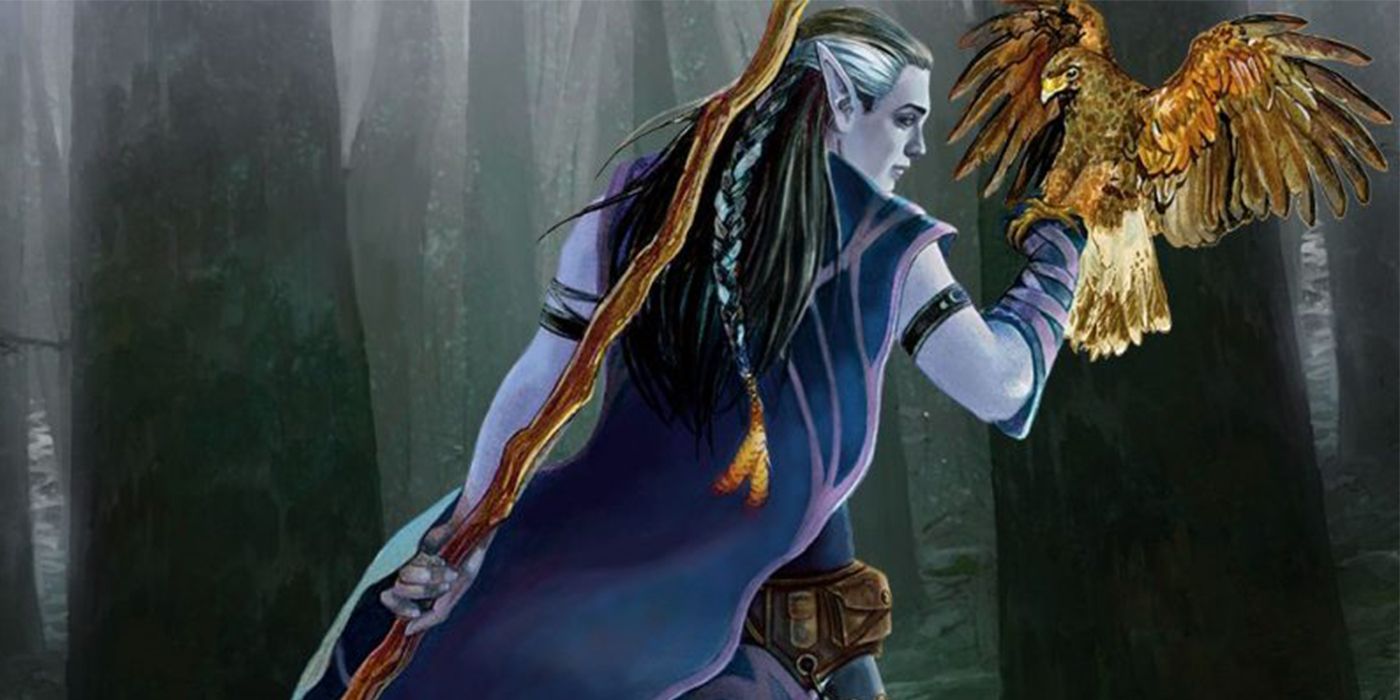
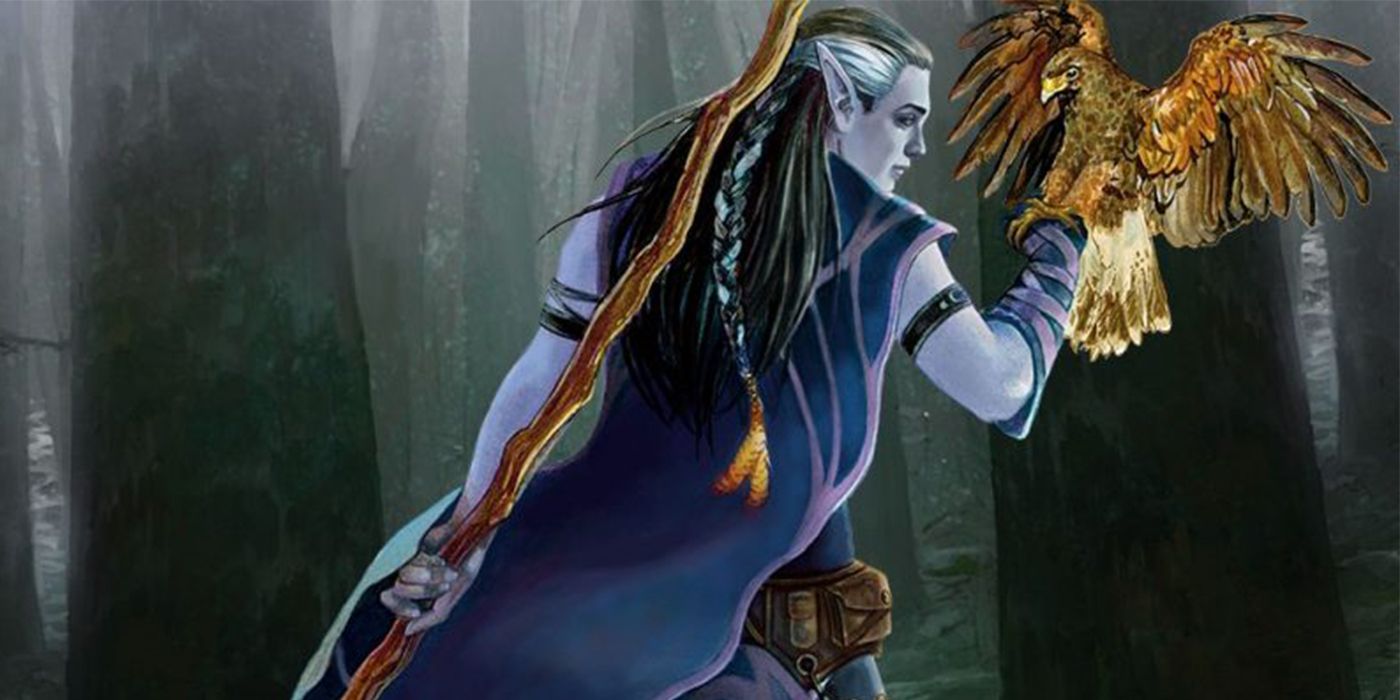
Ready to take on the power of nature with a new Dungeons & Dragons character? Then it's time to explore the formula to creating the best possible Druid build in the Dungeons & Ddragons 5th edition. Living far away from civilization in most cases, Druids venerate and protect nature in any and every environment, from scorching deserts to lush forests and deep underground caverns. They have some of the most interesting lore in the game because most of it comes from real life. This is one of the few classes in RPGs that actually exists as a thing in the real world.
RELATED: Dungeons & Dragons: Things Players Do That Annoy Every DM
Druids haven't always had a stellar reputation as a powerful and fun class in previous editions, but 5th edition Druids are versatile healers, fighters, and spellcasters with consistently high levels of power across pretty much all levels. It's hard to go wrong by playing as a Druid, but players will still need a few pointers, so check out this guide to maximizing the character's effectiveness in any situation.
Updated on August 3rd, 2021, by Kristy Ambrose: Druids have a reputation throughout the RPG world as being a versatile class that can fill virtually any role. That tradition continues in D&D as well, with a few new Conclaves to choose from along with a D&D library that contains extra materials for further customization. Presently, Druids have some of the best backstories and the most to do in the party when it comes to any role. They can even be the face of the party if that's what the player decides to put together using their Skills, Feats, Background, and ability scores.
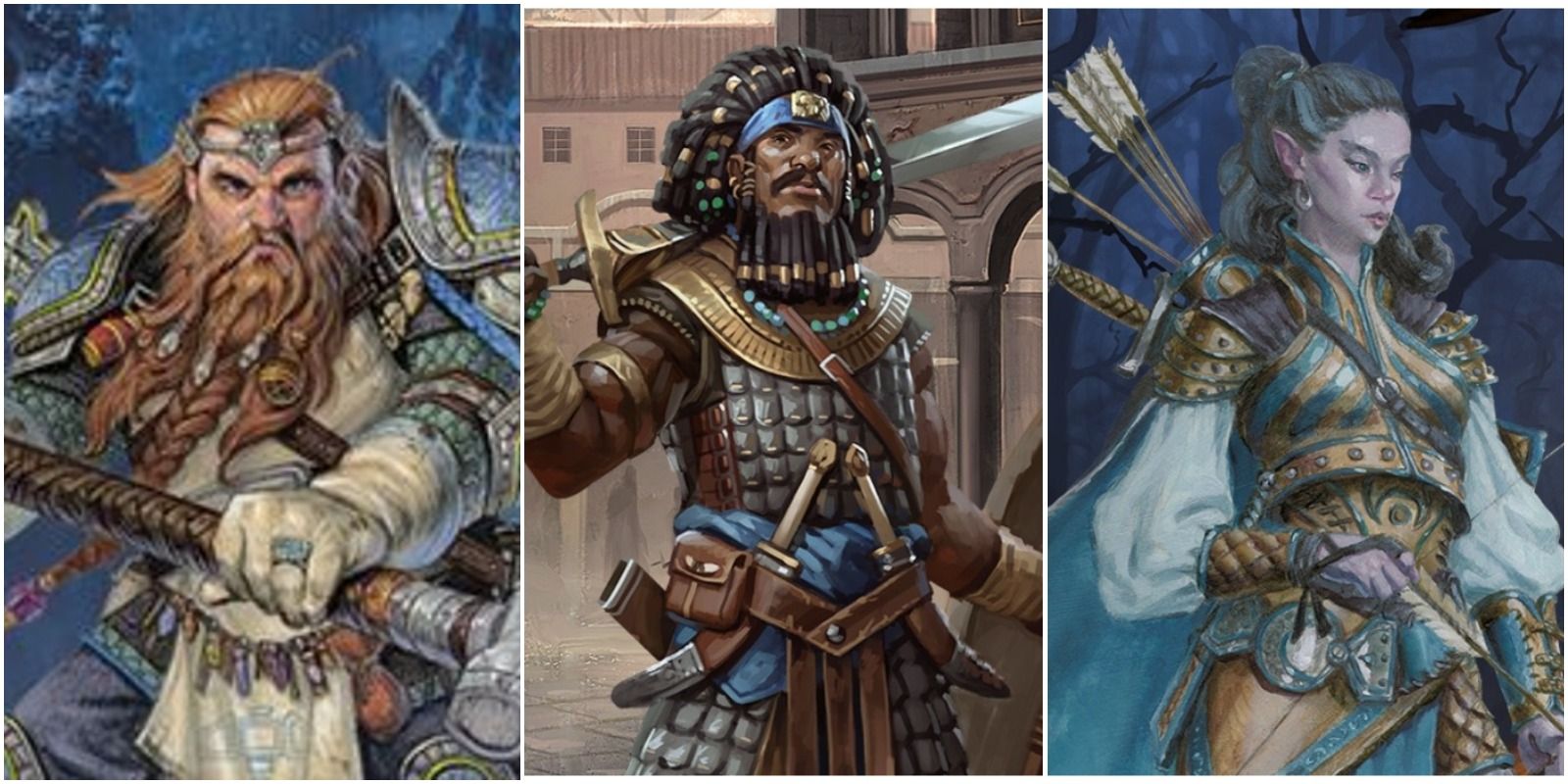
When considering the best race for playing a Druid, there are several options to consider. The best choices for Druids have bonuses in the ability scores for Wisdom and Intelligence, the most important ability scores for the Druid class.
- Wood Elves. +2 bonus to Dexterity and +1 to Wisdom, increased movement speed, and the Mask of the Wild ability.
- Water Genasi. Wisdom and constitution bonuses, plus the ability to breath underwater, acid resistance, and two free spells.
- Ghostwise Halfling. Introduced in the Sword Coast Adventurer's Guide, this race has the same skill boosts as Wood Elves, and gain limited telepathy in addition to the usual bonuses of the halfling race
- Variant Human. Inspired by the most versatile race in D&D, Variant Humans are a subset of Humans. Players can choose their ability score boosts and a starting Feat.
- Firbolg. +2 Wisdom and +1 Strength, useful to melee-oriented builds. They also get Disguise Self and Detect Magic.
- Kenku. Found in Volo's Guide to Monsters, this mysterious race is a challenge to RP but is growing in popularity. +1 Wisdom and +2 to Dexterity, which can have a number of applications.
Druids don't really have a "dump stat" thanks to the versatility of the class, but some ability scores are more important than others, and some are essential and a few are optional.
- Wisdom. Powers a Druid's spells, so it should have the highest number out of all the ability scores.
- Dexterity. Determines your AC, so it's always good to have, but even more important for a melee character.
- Constitution. Determines how many hit points a character gets, so it's important for healers, although it's the player's choice whether Dexterity or Constitution gets the higher score.
- Intelligence. Needed for Intelligence-based skills that are common with this class, such as Nature, Arcana, and Religion.
- Charisma. Depending on the finer details of your Druid build, this could be your dump stat, but Druids who aspire to party leadership can make use of it.
- Strength. Fighting Druids will choose this class over Charisma because it will make them more effective in melee combat when using weapons. However, when the Druid shapeshifts, their natural Strength is no longer a factor.
RELATED: Dungeons & Dragons 5e Best Artificer Builds
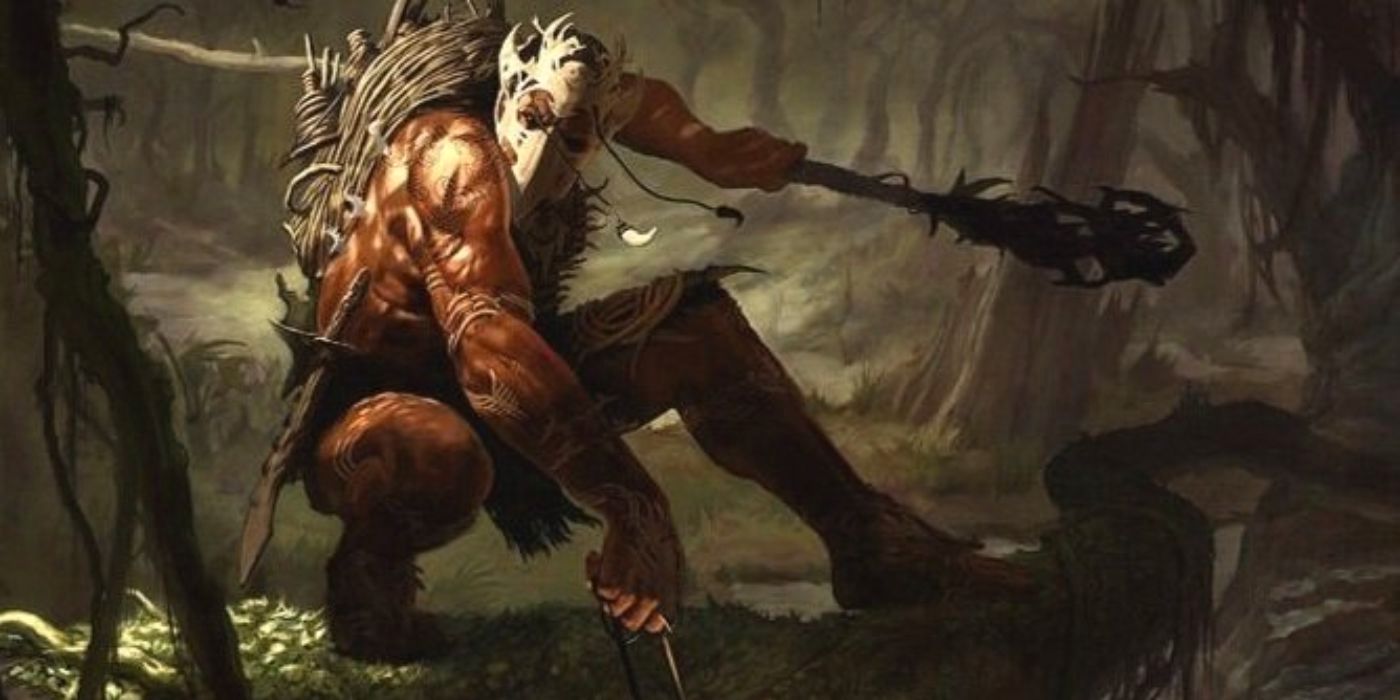
The following Druidic Circles serve as subclasses and determine your Druid's specific talents and powers. Some subclasses have to be purchased separately in different D&D sourcebooks.
- Circle of Dreams. Found in Xanathar's Guide to Everything, an ideal choice for Druids that prefer healing.
- Circle of Wildfire. Uses fire damage in their powerful array of spells and has a Fire Spirit companion.
- Circle of Stars. Found in Tasha's Cauldron of Everything, a nice combination of healing and damage spells.
- Circle of the Land. The classic spellcasting Druid, your powers are determined by the kind of landform you choose (Arctic, Swamp, Mountain, Underdark, Grassland, Forest).
- Circle of the Moon. Summon fire elementals and use the Wild Shape ability as a combat form, allowing the Druid to act as the party's main Defender.
- Circle of Spores. Includes offensive abilities like necromancy and raising undead. At higher levels, Spore Druids gain a whole host of AoE spells for damage and protecting their party.
- Circle of the Shepherd. This is the Circle to choose if you want to be the type of Druid that surrounds themselves with animal companions.
RELATED: Dungeons & Dragons: Subclasses To Try That Aren't Available In The Player's Handbook
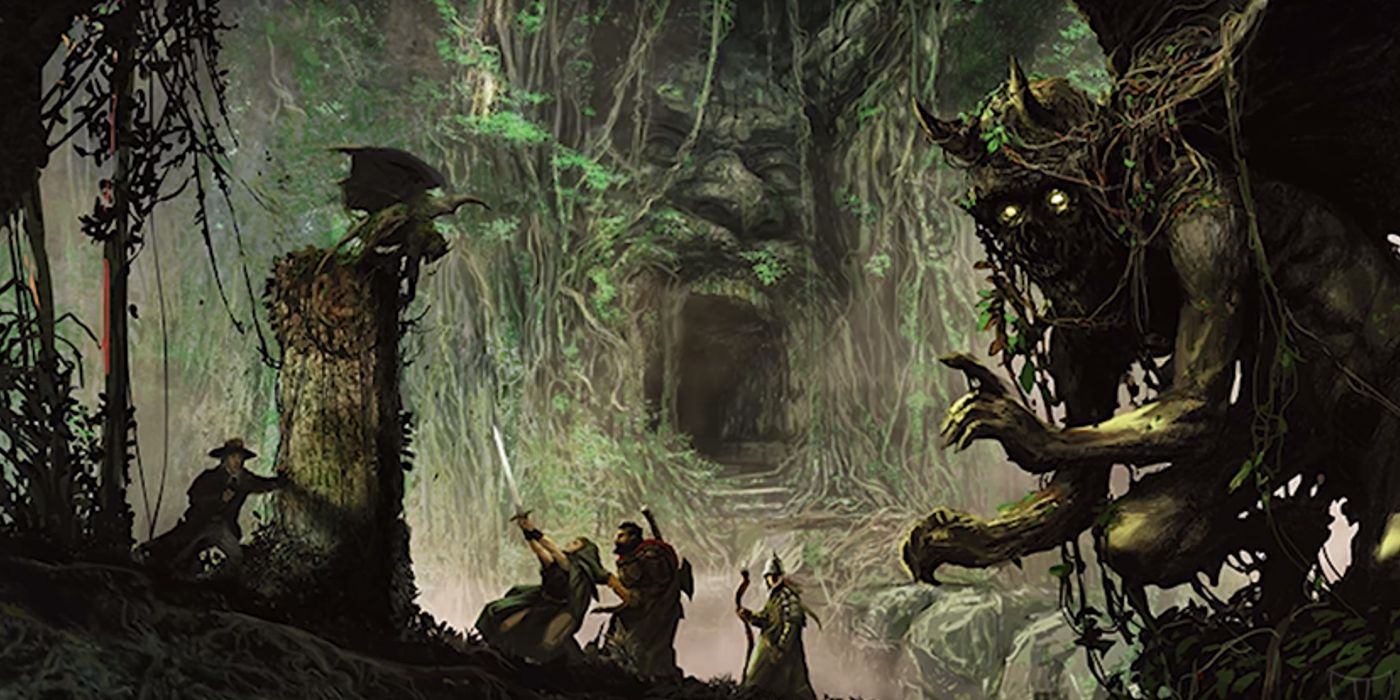
Skills and Feats are some of the last steps on your character sheet. These last few bits of customization help to round out your character's personality and backstory.
- Perception. Wisdom-based. Easily the most rolled skill in any D&D campaign and Druids have high Wisdom anyway, so this is a natural pick.
- Arcana. Intelligence-based. Makes it easier for your character to remember information about spells, magical items, and arcane traditions.
- Nature. Intelligence-based. Your character remembers information about terrain, tracking, animals, and plant life.
- Insight. Wisdom based. Your Druid's high Wisdom score means you have a better chance of determining a creature's true intentions.
- Religion. Intelligence-based. Makes it easier for your character to remember information about deities, cults, and anything related to religion.
- Elemental Adept. Some extra fire spells, which are useful to any Druid and even more useful to those of the Circle of Land.
- Fey Touched. Grants the Druid a handy spell called Misty Step, which isn't normally in the Druid's spell cache.
- Mobile. Speed increases by 10 ft, you can Dash on difficult terrain and don't provoke opportunity attacks in melee. Also applies while in Wild Shape form.
- Observant. Gives a boost to the druid's Wisdom and passive Perception.
Wrapping up character creation by selecting a background for the Druid helps fill out your backstory and gives your character a few extra skills.
- Hermit. A Druid would spend time in isolation, far away from human habitation. This background also makes sense if you want to double your healing abilities with homemade potions.
- Cloistered Scholar. For Druids who focus more on spellcasting, this grants two extra languages and two more Knowledge skills.
- Faction Agent. Think of the character Jaheira and her adherence to the Harpers, and you have a Druid from this background. It also gives your Druid Insight and the choice of a wide range of helpful skills, plus two extra languages.
- Sage. Gives you two extra languages and two Knowledge skills.
NEXT: Dungeons & Dragons: Rules That Should Be Tweaked (And How To Do It)
